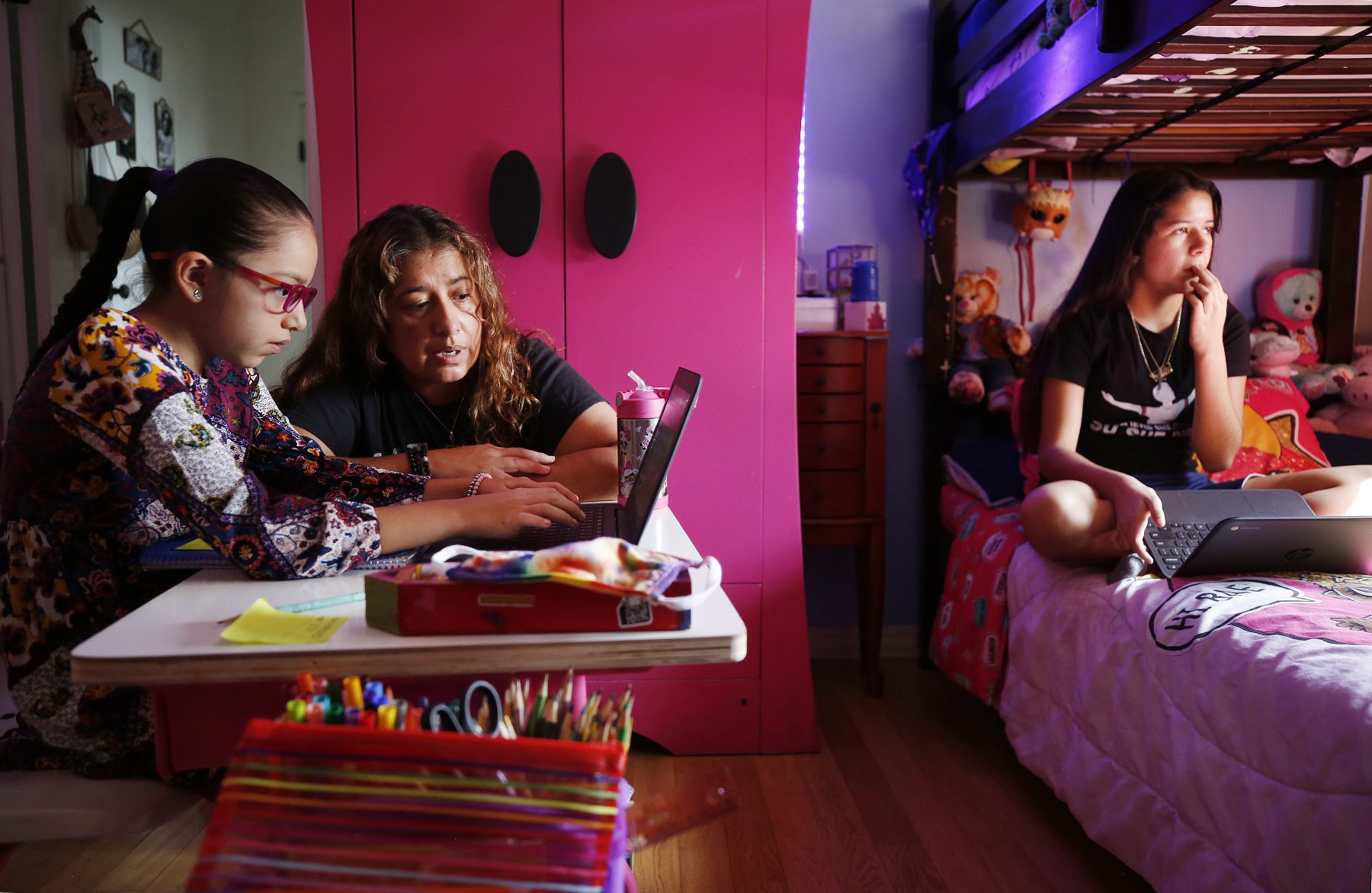During the pandemic, child care was a second full-time job for many moms of young kids.
On average, moms with children ages 12 and under spent about eight hours a day on direct or indirect child care last year, while simultaneously working an average of six hours on weekdays, according to data released by the Bureau of Labor Statistics and analyzed by the Brookings Institution.
The findings, which capture the way Americans split their time from May to December 2020, are a stark illustration of who caregiving duties fell to when the pandemic shuttered schools and child care centers across the country.
Moms bore the majority of it. Dads, by contrast, spent little more than half as much time on child care — five hours — while working eight-hour days on average during the week. The survey only collects data on men and women, and doesn’t break out statistics for nonbinary people or specifically look at LGBTQ+ couples.
The numbers are averages based on thousands of interviews with people across the country about how they spend their time on a daily basis, revealing just how common the situation is for moms.
“It’s the acknowledgement that actually [child care] was basically a full-time job,” said Lauren Bauer, a fellow in economic studies at the Brookings Institution and one of the authors of the report.
Overall, moms also spent twice as much time as dads daily doing primary care — things like feeding, bathing, dressing or playing with kids — and three more hours daily on any kind of child care. Indirect, or secondary care, was when parents were engaged in another primary activity like working or cooking, but their children were with them.
The outcome of that burden was already clear: Hundreds of thousands of mothers left the workforce to focus solely on their children over the past year. They did it, oftentimes, because they were the parent more likely to be making less money and more likely to already do the child care, a picture of how deeply ingrained traditional gender roles are in American society.
In April 2020 alone, 3.5 million moms of school-age children shifted out of active work, moving into paid or unpaid leave, losing their jobs, or leaving the labor force completely, according to the U.S. Census Bureau. About half of all moms were not working that month.
The care crisis, plus the loss of jobs in industries dominated by women like hospitality and child care, drove America’s first women’s recession. It’s a recession that has been particularly punishing for women of color, who have lagged behind White women to recover even as sectors of the economy have started to bounce back. The unemployment rate for Black women is 8.5 percent, while White women have an unemployment rate of 5 percent.
There’s still a long way to go. As of June 2021, the most recent month for which data is available, the rate of single moms who were working or looking for work was still down 5 percentage points below the rate in January 2020. That group typically has the highest rate among prime-age working moms because single mothers can’t rely on other parents for income.
Some groups of fathers have also stepped up in the past year to take on more child care. According to Bauer’s analysis, fathers of kids between the ages of 5 and 12 were the only group of parents to increase the amount of time they were spending on direct care. (The increase among moms was driven by a rise in secondary care).
That makes sense, Bauer said, because moms of elementary school-age kids were also the most likely to leave work and feel the constraints of loss of child care and school more acutely.
“Dad stepped up,” she said, “but only for this group.”
Moms of elementary-school age kids still did three more hours of direct and indirect care combined, even with the bump from dads. And women were far more likely to reduce their work hours — an hour less on average per week compared to last year — than fathers.
“Those are individual negotiations in a household, but who felt the immediate obligation and pressure to either quit their job because of what happened or negotiate to work less?” Bauer said. “That’s mom and that’s very clear from the statistics.”








